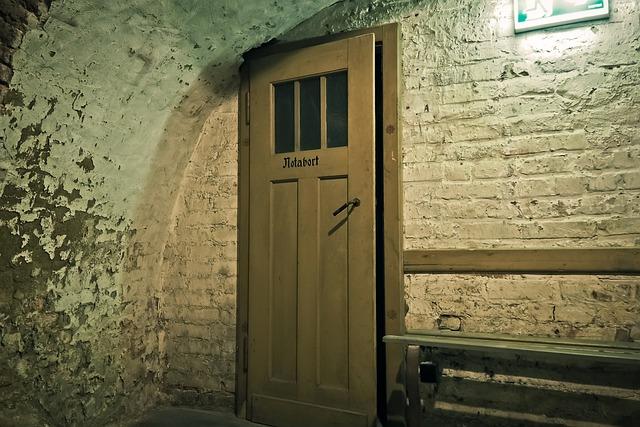In a tragic escalation of violence in southwestern Niger, at least 44 civilians lost their lives in a devastating attack on a mosque, according to reports from Anadolu Agency. This incident, which occurred during a period marked by rising tensions and security concerns in the region, highlights the ongoing challenges faced by communities in Niger as thay navigate threats from armed groups. The attack, believed to be part of a broader trend of violence affecting places of worship and civilian gatherings, has drawn condemnation from local leaders and humanitarian organizations alike. As Niger continues to grapple with instability, the implications of such brutal acts raise urgent questions about security, governance, and the safety of innocent civilians in one of the world’s most vulnerable regions.
Attack Details and Context of the Tragedy
the tragic attack on a mosque in southwestern niger resulted in the deaths of 44 innocent civilians, marking a devastating escalation in the region’s ongoing violence. Eyewitness accounts reveal a scene of horror as armed assailants stormed the mosque during Friday prayers, targeting worshippers in a sacred space that symbolizes peace and community. The local population, already grappling with the threat of extremist groups, now faces heightened insecurity and fear as they mourn the loss of their loved ones, who were killed while practicing their faith.
This incident is part of a broader pattern of violence that has plagued Niger and its neighboring countries,where militant groups exploit instability and socioeconomic challenges to perpetrate attacks.Key factors contributing to this violence include:
- Weak governance: Limited state presence and control in rural areas, leaving communities vulnerable.
- Inter-communal tensions: Long-standing ethnic disputes exacerbated by external influences and resource competition.
- Militant recruitment: Extremist groups capitalizing on local grievances and poverty to attract new members.
In response to this tragedy, local authorities and community leaders are calling for increased security measures and international support to combat the rising tide of extremism and protect vulnerable civilians in the region. As the investigation into the attack unfolds, there are urgent demands for accountability and justice for the victims, ensuring that such atrocities are not repeated in the future.
Impact on Local Communities and Religious Institutions
The recent attack on a mosque in southwestern Niger has sent shockwaves through local communities, leaving families shattered and a profound sense of fear in its wake. The loss of 44 civilians not only impacts the victims’ immediate families but also disrupts the weaving fabric of neighborhood ties and communal support that have long been essential to the region. Religious gatherings, frequently enough a source of solace and unity, now carry an undercurrent of anxiety, reshaping the way community members engage with one another.Many individuals find themselves grappling with the reality of attending prayers, fearing further violence, which could lead to dwindling attendance and, consequently, weakening of theological and social bonds.
Religious institutions, traditionally viewed as sanctuaries of peace and comfort, face unprecedented challenges in this volatile atmosphere. Many leaders are calling for increased dialogue and peace-building initiatives, yet the aftermath of the attack may hinder these efforts as distrust seeps into interactions among diverse groups. In response to this crisis, local religious institutions are emphasizing their role in community resilience and advocating for:
- Healing programs to support grieving families
- Interfaith dialogues to bridge divides among various factions
- community security measures to protect congregants during gatherings
Despite the challenges, many in the community are rallying around their religious leaders, hoping to restore a sense of normalcy and faith in a brighter future.
Responses from Government Officials and International Bodies
In the wake of the tragic attack on a mosque in southwestern Niger, government officials have expressed their deep sorrow and outrage. The Nigerien government promptly condemned the violence, calling it a “heinous act” that undermines the country’s efforts to maintain peace and stability. High-ranking officials emphasized the need for national unity in the face of terror,urging citizens to remain vigilant and support security forces as they work tirelessly to protect communities. Local authorities are conducting investigations to identify the perpetrators and ensure that those responsible are brought to justice. The government is also calling for enhanced regional cooperation to tackle the growing threat of terrorism.
International bodies and organizations have swiftly responded to the incident, echoing the calls for solidarity and justice. The United Nations issued a statement denouncing the attack and reaffirmed its commitment to supporting Niger in its fight against extremism. Additionally, the African Union has expressed condolences to the families of the victims, highlighting the urgent need for collaborative strategies to combat violence across the Sahel region. Key points made by these international entities include:
- Condemnation of Violence: A strong collective voice against acts of terror.
- Support for Victims: Calls for humanitarian assistance and aid to those affected.
- Regional Collaboration: Emphasis on joint efforts to enhance security protocols.
Recommendations for Enhancing Security in Vulnerable Regions
Enhancing security in areas prone to violence is imperative for protecting vulnerable populations. Local governments should prioritize investment in community-based policing initiatives, which encourage collaboration between citizens and law enforcement. This approach not only fosters trust but also enables rapid interaction regarding potential threats. Moreover,training programs for security personnel focused on conflict resolution and cultural sensitivity can significantly improve their effectiveness in managing tensions and preventing escalations.
Additionally, the establishment of early warning systems is crucial for timely responses to emerging threats. These systems can be developed through the integration of technology, such as mobile applications, to alert communities about potential attacks. Local authorities should also enhance intelligence-sharing mechanisms among neighboring regions to create a united front against extremist groups. Investing in community resilience programs, which provide psychological support and reintegration services for victims and affected families, further strengthens societal bonds and reduces the likelihood of retaliatory violence.
The Role of Community Resilience in Rebuilding After Violence
The aftermath of violence often leaves communities shattered, but the strength and resilience of these communities can play a pivotal role in the recovery process. Community resilience refers to the ability of individuals and groups to withstand stress and rebuild effectively after traumatic events. In the face of recent tragedies, such as the attack on the mosque in southwestern Niger, communities must lean on their shared resources and social bonds to foster healing. The collective determination of residents not only aids in physical reconstruction but also in restoring trust and a sense of belonging among members.
To enhance community resilience post-violence, several strategies can be implemented:
- Engagement in dialogue: Creating platforms for open discussions allows community members to voice their concerns and support one another.
- Resource mobilization: Identifying and utilizing local resources can definitely help in addressing immediate needs, such as food, shelter, and medical care.
- Skill advancement programs: Providing training and education can empower individuals,enabling them to contribute to the community’s rebuilding efforts.
| Key Elements of Community Resilience | Description |
|---|---|
| Social Cohesion | strengthened ties and mutual support among community members. |
| Responsive leadership | Effective local leaders mobilizing resources and guiding recovery. |
| Access to Services | Availability of essential services like healthcare, education, and counseling. |
Long-term Solutions to Prevent Further Attacks on Places of Worship
The tragic attack on the mosque in southwestern Niger highlights an urgent need for comprehensive strategies to safeguard places of worship against future violence. One effective approach is the strengthening of community resilience. Local leaders and congregations can play a pivotal role in cultivating environments that foster tolerance and mutual respect.Programs that promote interfaith dialogue can help bridge divides and combat extremism. Furthermore, enhancing community watch programs, where citizens collaborate with law enforcement, can deter potential attacks and encourage prompt reporting of suspicious activities.
Along with community engagement, policy reforms at governmental levels are crucial. Authorities must prioritize the protection of places of worship through improved security measures, such as establishing dedicated law enforcement units specializing in religious site protection. Financial support for security enhancements in vulnerable areas is essential, including the installation of surveillance systems and hiring trained security personnel. A collaborative approach involving local, national, and international stakeholders can lead to effective action plans that not only provide immediate safety but also tackle the root causes of violence against places of worship.
To Conclude
the tragic attack on a mosque in southwestern Niger that resulted in the deaths of 44 civilians underscores the growing volatility in the region. This violence not only claims lives but also deepens the humanitarian crisis faced by communities grappling with insecurity and displacement.The international community must respond with urgency to support affected populations and address the underlying issues contributing to such brutal acts of violence.As investigations continue and calls for accountability emerge, the hope remains that peace and stability can be restored to this troubled region. The loss of innocent lives is a stark reminder of the need for concerted efforts to combat extremism and foster dialogue among communities. Further developments will be closely watched as Niger navigates this challenging landscape.

